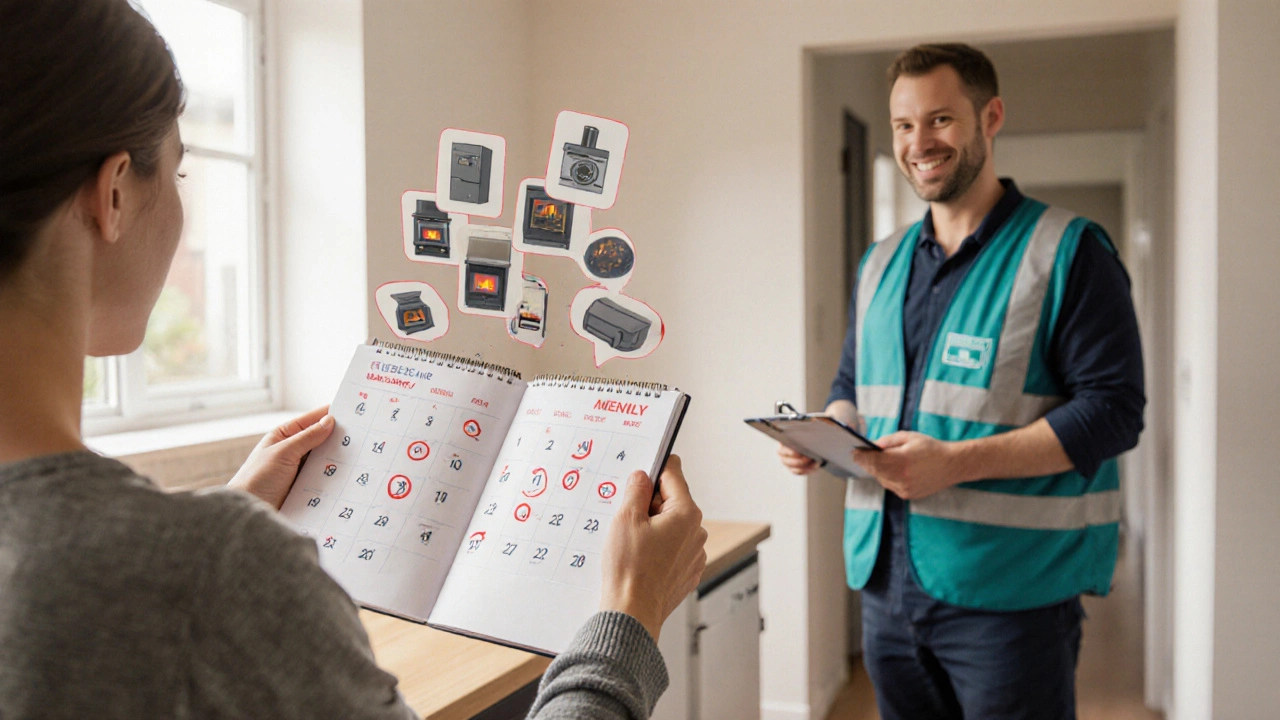When dealing with home gas appliances maintenance, the systematic care of all gas‑powered devices inside a residence. Also known as gas appliance upkeep, it ensures appliances run safely, reliably, and cost‑effectively. Gas Oven, a staple for cooking that needs regular cleaning of burners and inspection of ignition parts and Boiler, the central heating source that benefits from annual pressure checks and heat‑exchanger cleaning are two of the most common fixtures covered by this routine.
Why does this matter? Home gas appliances maintenance reduces the risk of carbon monoxide leaks, prevents unexpected breakdowns, and lowers energy bills. A well‑maintained gas oven keeps heat distribution even, while a serviced boiler delivers steady warmth without the costly spikes that come from inefficient operation. In short, regular care creates a safer indoor environment and stretches the lifespan of pricey equipment.
First, always check for gas smells before turning anything on. A faint odor signals a possible leak, and the fix starts with tightening connections and replacing worn seals. Next, clean burner ports on ovens and stoves; food residue blocks flame and forces the appliance to work harder. For boilers, flush the system yearly to remove sediment that can cause overheating. Finally, test safety devices such as the flame‑failure sensor on ovens and the pressure relief valve on boilers. Each step is a tiny investment that prevents major headaches later.
Beyond the basics, consider scheduling a professional inspection at least once a year. Certified technicians can run combustion analysis, verify venting, and calibrate thermostats—tasks that most DIYers lack the tools for. However, many owners handle the quick wins themselves: wiping down knobs, inspecting hoses for cracks, and confirming that the pilot light (if your unit uses one) stays steady. Balancing DIY care with expert service gives you the best of both worlds.
Energy efficiency ties directly into maintenance. When burners are clean and igniters function properly, less gas is needed to reach the same temperature. Likewise, a boiler that has been descaled runs at optimal pressure, cutting waste heat. By recording monthly usage and noting any spikes after a repair, you can spot trouble early and tweak habits—like turning the oven off a few minutes before the timer ends to let residual heat finish the job.
Safety isn’t just about leaks. Proper ventilation matters, especially in tight homes. Ensure that range hoods vent to the outside and that boiler flues are unobstructed. Install a carbon‑monoxide detector near any gas‑fuelled appliance; the alarm is a cheap life‑saver that works even if you miss a subtle smell.
Now that you’ve got a clear picture of what gas appliance safety, the set of practices that keep users protected from fire, explosion, and toxic gases looks like, you’ll see why the articles below are grouped together. They dive deeper into specific appliances, troubleshooting tricks, cost‑benefit analyses, and step‑by‑step repair guides. Browse the collection to find the exact advice you need for your oven, boiler, or any other gas‑powered gadget at home.
Posted by
Orin Trask
0 Comments

Learn the legal and practical schedule for checking gas appliances in New Zealand, spot warning signs, and get tips on choosing a licensed gasfitter.
read more